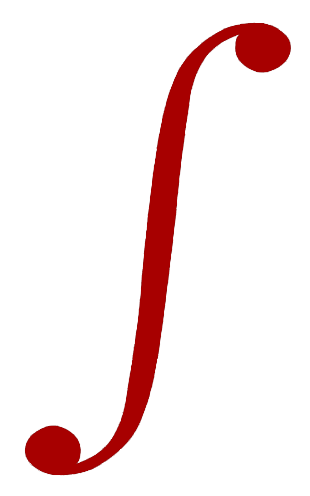Personal Story
I am incredibly excited to be part of the Saint Mary’s College of California faculty! Higher education has been a dream of mine since I was in high school, and I am thrilled that I can realize this goal at a place like Saint Mary’s. Teaching and education have always been my passion. For example, as a child I used to play “school” with stuffed animals (I was, of course, the teacher), and in high school I published a bi-weekly math magazine to help students prepare for the AP Calculus exam. This interest continued throughout college and graduate school, where I have sought out opportunities to better hone my science communication skills. At the risk of sounding cliché, teaching gives me life, and when I am allowed to teach all other aspects of my life (work and personal) improve. I am most at peace when I am in a classroom.
I grew up near Detroit, Michigan and attended the University of Michigan — Dearborn after graduating from high school. After two years at UofM, I transferred to Northwestern University where I completed my undergraduate education in mathematics and physics. I began college with the intention of majoring in music and becoming a composer. However, I realized that music was best intended as a personal hobby, and I switched my concentration to mathematics. Music remains a strong component of my life, and I still dabble on my piano in my free time (that is, when my cat, Geo, doesn’t criticize and claw at my hands while I play). As a mathematics major, I took on a double degree of physics “for fun,” but majoring in both mathematics and physics made me appreciate that physics married all the aspects of mathematics, science, and computation that I loved. In my junior and senior years, I decided that it was physics that I would pursue in graduate school, particularly astrophysics. I chose astrophysics over classical or high-energy physics because of the potential impact teaching astronomy can have on students and the public. I view astronomy as a “gateway science,” one that anyone can get excited about, and I am excited for the opportunities to use astronomy as a means of introducing people to the wonder of science and the scientific method.
Before going on to graduate school, however, I studied for a year at University of Cambridge in England, participating in Part III of the Math Tripos. This opportunity was also intended to be a study-abroad opportunity, since I did not get the opportunity to do so as an undergraduate. After I completed Part III and before returning to the United States, I taught a one-month summer astronomy course to a set of precocious high school students that attended the University of Cambridge for the summer. This was my first experience running an entire astronomy course, and it re-enforced my love for teaching.
During graduate school at the University of California Berkeley, I was a frontrunner for the department’s public education and outreach efforts. In this role, I answered ask-an-astronomer phone calls and emails, helped set up visits from high schools, gave public talks to local astronomical societies, and much more. Dedication to public education is something that I value in my career, and I think it is not only worthwhile but necessary for faculty to participate in public education from time to time. As a graduate student, I also taught the departments “How to be a TA” course that was required for all incoming graduate students. Teaching this course introduced me to teaching-as-scholarship, where teaching can be viewed as a scholarly activity that can be studied. I became immersed in physics and astronomy pedagogy (admittedly, sometimes to the detriment of my own astronomical research—but don’t tell my Ph.D. adviser).
After graduate school, I moved to the University of Massachusetts Amherst to work with Stella Offner. Shortly after arriving, she received a position at the University of Texas Austin, and we relocated to Texas after one year. Since completing my postdoctoral appointment with her, I have been here at Saint Mary’s.
Short Faculty Bio
Aaron T. Lee is an assistant professor in the Saint Mary's Department of Physics and Astronomy. His research models the formation of stars and planets, which he does using some of the most powerful supercomputers in the world. Currently he focuses on understanding the conditions that result in the formation of binary stars versus single star systems. Aaron has a Ph.D. in astrophysics from UC Berkeley, where he was both an NSF Graduate Fellow and UC Berkeley Dissertation Fellow. His favorite student is his cat, Geo, who is also his harshest critic.
CURRICULUM VITAE
A link to my CV can be found on the navigation bar at the top of my website pages.
FACULTY WEBPAGE
My faculty webpage can be found here.
Geo, the cat
Education
PH.D. AND M.S. ASTROPHYSICS
University of California Berkeley
Go Bears!
Activities & Affiliations
Completed concentration in computational science
Completed higher education teaching certificate program
Public liaison for astronomy department 2008-2016
Awards
UC Berkeley Dissertation Fellowship
Fall 2017
NSF Graduate Fellowship
Fall 2009
Teaching Effectiveness Award
Spring 2010
Outstanding TA Award
Spring 2010
M.S. APPLIED MATHEMATICS & THEORETICAL PHYSICS
Cambridge University
Newton worked here…
Activities & Affiliations
Institute of Astronomy outreach member
Awards
Graduated with honors
Spring, 2008
Poster Award, Churchill College Science Conference
Spring, 2008
Cambridge Overseas Scholarship
2007
B.A. IN MATHEMATICS & PHYSICS
Northwestern University
Go cats!
Activities & Affiliations
Phi Beta Kappa
Pi Mu Epsilon
Sigma Pi Sigma
Northwestern University Marching Band (Alto Sax)
NU Dance Marathon Finance Committee, 2006
Awards
Summa Cum Laude
Spring, 2007
Graduated with honors (both math and physics)
Spring, 2007
USA Today All-Star Academic Team
Spring, 2007
Lee Corbin Academic Award
Spring, 2007





